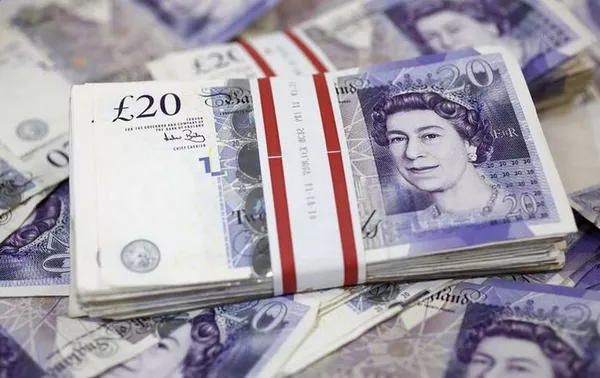In the world of finance and global economics, currencies play a crucial role in facilitating trade and financial transactions. Each country has its own currency, which is represented by a unique three-letter code. The British pound sterling, often referred to as GBP, is the official currency of the United Kingdom. In this article, we will explore what GBP means in money and delve into its history, significance, and factors that can influence its value.
1. The Origin and History of GBP
The British pound sterling has a rich history that dates back several centuries. Its origins can be traced to Anglo-Saxon times when silver pennies were used as a form of currency. Over time, the pound evolved and gained importance as an international currency during the British Empire’s heyday. Today, it remains one of the world’s major reserve currencies and is widely accepted for international transactions.
2. Significance of GBP
The GBP holds significant importance on various fronts. It serves as a medium of exchange within the United Kingdom, enabling individuals and businesses to engage in domestic transactions. Additionally, the GBP is widely used for international trade and investment, making it essential for global commerce. As a major reserve currency, it plays a vital role in central banks’ foreign exchange reserves worldwide. Moreover, fluctuations in the GBP’s value can have profound effects on the UK economy and global financial markets.
3. GBP Symbol and Code
The symbol for the British pound sterling is £, which is derived from the Latin word “libra,” meaning “a pound weight.” The GBP is represented by the three-letter code “GBP,” where “GB” stands for Great Britain and “P” represents the pound. This internationally recognized code allows for easy identification and standardization across financial systems.
4. Factors Influencing GBP Value
The value of GBP against other currencies fluctuates due to various factors. Some key influencers include:
Economic Indicators: Economic indicators such as GDP growth, inflation rates, employment data, and interest rates play a crucial role in determining the value of a currency. Positive economic performance typically strengthens the currency, while negative indicators can lead to depreciation.
Political Events: Political stability or instability, elections, government policies, and geopolitical events can significantly impact a currency’s value. Uncertainty or adverse political developments can cause currency volatility.
Monetary Policy: Decisions made by the Bank of England (BoE) regarding interest rates, quantitative easing programs, and monetary policy measures influence the GBP’s value. Changes in these policies can affect borrowing costs and investor sentiment, thereby impacting the currency’s exchange rate.
Market Sentiment and Speculation: Market sentiment and speculative activities can create short-term fluctuations in currency prices. Traders and investors closely monitor market trends, news, and sentiment to anticipate future movements.
Trade and Current Account Balances: A country’s trade balance and current account deficit or surplus can impact its currency value. Higher exports than imports generally strengthen the currency, while a significant trade deficit may weaken it.
5. GBP and Brexit
Brexit, the process through which the United Kingdom exited the European Union, has had a profound impact on the GBP. The uncertainty surrounding Brexit negotiations and subsequent outcomes created significant volatility in the currency markets. The GBP experienced sharp declines against major currencies during key Brexit developments but also exhibited periods of recovery.
6. GBP Exchange Rate Mechanisms
The GBP exchange rate is determined by supply and demand dynamics in the foreign exchange market. It is influenced by various factors, including interest rate differentials, capital flows, economic fundamentals, and market sentiment. Currency exchange rates are subject to constant fluctuations and are determined by the interplay of these factors.
Conclusion
In conclusion, GBP refers to the British pound sterling, the official currency of the United Kingdom. It holds significant importance both domestically and internationally, facilitating trade, investment, and financial transactions. The GBP’s value is influenced by various factors, including economic indicators, political events, monetary policy, market sentiment, and trade balances. Understanding these dynamics is essential for businesses, investors, and individuals engaged in international commerce or currency trading. Monitoring GBP exchange rates and staying informed about key developments can help navigate the intricacies of the global financial landscape.


